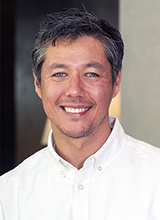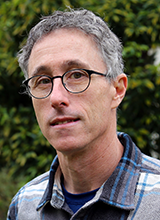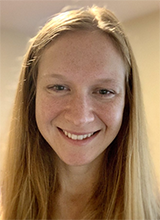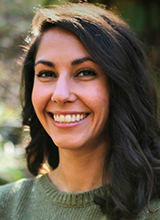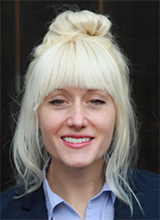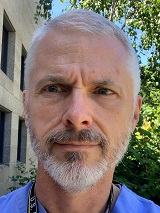Dr. Dahyeon Kang is an Assistant Professor at the University of Washington School of Medicine. She earned her doctoral degree from the University of Illinois at Urbana-Champaign, where her work focused on the etiology of alcohol and substance use disorders through multimodal research methods, including alcohol administration, neuroimaging, transdermal biosensors, and ecological momentary assessments. At the University of Washington’s Department of Psychiatry, Dr. Kang investigates how individual and social factors interact to influence alcohol and cannabis use behaviors.
As a clinical and quantitative psychologist, my work bridges statistical practice and psychological theory to better identify for whom, under what conditions, and why substance-related health disparities are greatest across development. My substantive research seeks to understand how individual differences in stress and developing self-regulation shape substance use and disorder from adolescence through young adulthood, and how these associations explain substance use disparities among sexual and gender minoritized communities. Stemming from this work, my methodological research is centered on improving the analysis and interpretation of nonlinear effects spanning parametric and non-parametric methodologies.
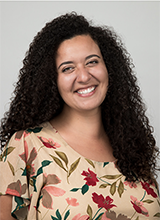
I am a faculty member and licensed clinical psychologist in the University of Washington’s Department of Psychiatry and Behavioral Sciences. Before joining this department, I completed my Ph.D. in clinical psychology at Purdue University, residency at the University of Washington, and fellowship at the University of Pennsylvania.
My research interests primarily center around romantic relationship functioning and personality disorder (PD) measurement. My line of PD research centers around how the use of a trait-based, dimensional approach to assessing and measuring PDs may increase construct validity, reliability, and diagnostic accuracy relating to PDs. My romantic relationship research centers around how romantic relationship functioning and interpersonal behaviors are associated with psychopathology diagnoses and symptoms.
As a clinician, I specialize in treating suicidality and self-harm using comprehensive Dialectical Behavior Therapy; in treating PTSD using Cognitive Processing Therapy and Prolonged Exposure; and in treating anxiety-related disorders using exposure therapies like Exposure and Response Prevention for OCD and Exposure for Social Anxiety. I am also passionate about providing couples’ therapy.
Dr. Adam Kuczynski is a clinical psychologist and Acting Assistant Professor at the University of Washington School of Medicine, Department of Psychiatry and Behavioral Sciences. He received his PhD from the University of Washington in 2023 after completing his pre-doctoral internship at the same institution, training in serious mental illness and inpatient care at Harborview Medical Center and psycho-oncology Fred Hutch Cancer Center. Dr. Kuczynski currently works at the UW’s long-term civil commitment program and studies strategies to improve inpatient care for individuals with serious mental illness
I am a Research Associate Professor in the Department of Psychiatry and Behavioral Sciences and in the UW Psychology Department, where I am Director of the Center for the Science of Social Connection. I also am a member of the leadership team of the UW Medicine’s Office of Healthcare Equity, where I am Director of EDI Training and Education. My research and training efforts focus on understanding and intervening on bias and microaggressions, improving EDI training and consultation efforts, and developing close relationships especially across the differences that typically divide us.
I use the pronouns he, him, his.
My research broadly aims to better understand the etiology of depression and risk behaviors such as suicide and substance use across development, and translate findings to inform prevention and intervention strategies for youth and families. My work focuses on partnering with communities and primary care clinics to improve access to and use of effective mental health services.
My current projects include studies focused on adapting and evaluating suicide prevention intervention and implementation strategies for use with adolescents and their families in primary care and outpatient medical settings, including developing and adapting brief, just-in-time, and digital interventions to expand access to services.
In addition to research, I am also a clinical psychologist in the Mood and Anxiety Disorders Program and the Crisis Care Clinic at Seattle Children’s Hospital.
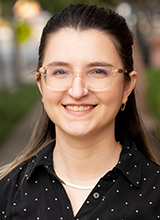
Areas of clinical practice:
SLU at Fred Hutch Cancer Center and UW Diabetes Institute
My passion and background are working with individuals with serious medical conditions, primarily cancer but also other chronic health conditions. I split my clinical time between FHCC and UW Diabetes Institute. I also passionate about conducting research about existential distress and post-traumatic growth in oncology.
Clinical Approach:
I practice an interpersonal approach to psychotherapy, rather than solely structured one. I enjoy building a collaborative relationship with my patients to identify goals to work on in therapy. I really want our time together to be worthwhile. There’s only so much time and energy someone with a major illness has. I am a big fan of the spoon theory and don’t want to be wasting their spoons. I love to use humor, metaphor and stories. I also find it important to provide space and opportunities to discuss heavier topics related to prognosis, morality, grief and legacy. I enjoy supporting patients with meaning making and trying to answer difficult questions such as “What’s the meaning of all this? How can we help patients live well with what life is remaining?”
Personal History:
I have a small, supportive family with my partner and our dog. Growing up, I was close with my grandparents. My grandfather who lived with Parkinson’s disease for most of my life. Parkinson’s has a lot of physical symptoms, but also mood symptoms. Additionally, he also lived with chronic melanoma and prostate cancer. His health had a large impact on his life, our family, and how I now view quality of life during treatment and at end of life. He always faced challenges and changes in his functioning with humor and creative to continue to engage in active he enjoyed like travel, golf and a fancy meal. Around the time I started graduate school for psychology, he passed away. His legacy influenced me work with people who were living with serious medical conditions or acquired new disability. I want to help patients live with it instead of against it.
Dr. Blayney’s research aims to understand the risks for and consequences of sexual victimization. More specifically, this work centers around how social contexts influence sexual victimization risk as well as variation in post-victimization recovery, such as posttraumatic stress disorder, alcohol use, and sexual risk behaviors.
I am a clinical psychologist with board certification in geriatric psychology. I am based in the Geriatrics and Extended Care Service of the VA Puget Sound Healthcare System.

